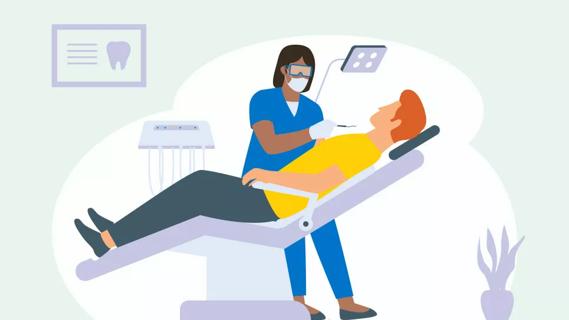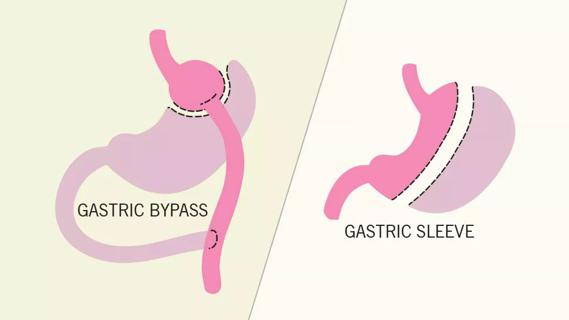Advertisement
An anesthesiologist weighs in on why you shouldn't be afraid

For some people, anesthesia is one of the scariest parts of surgery. Do you wonder about the risks, too?
Advertisement
Cleveland Clinic is a non-profit academic medical center. Advertising on our site helps support our mission. We do not endorse non-Cleveland Clinic products or services. Policy
Anesthesiologist Christopher Troianos, MD, offers some insights to help separate fact from fiction. He highlights five key points about anesthesia that are sometimes misunderstood or have changed in recent years.
There are four different types of anesthesia, and you’re only completely unconscious with one of them.
This is true nowadays, but wasn’t always the case, Dr. Troianos says.
“In the 1960s and 1970s, it wasn’t uncommon to have a death related to anesthesia in every one in 10,000 or 20,000 patients,” he says. “Now it’s more like one in every 200,000 patients — it’s very rare.”
He emphasizes that anesthesia is safer today because of advances in both technology and medication.
It’s common to experience the following when you wake up from anesthesia:
Advertisement
Although most anesthesia wears off fairly quickly, you may still feel groggy or have impaired judgment after surgery.
“We usually tell people not to make any major life decisions or drive a car or operate machinery for the first 24 hours after surgery,” Dr. Troianos says. “A few patients, particularly elderly patients having longer surgeries, may exhibit memory problems, difficulty multitasking, or learning new things. This is temporary for most patients but for others these symptoms may persist for a few months after surgery.”
He says it’s unclear whether this condition is due to their exposure to general anesthesia or the stress of surgery. But it’s for this reason that a regional or local type of anesthetic is prescribed for elderly patients by their physician anesthesiologist.
In the past, people who had an epidural or spinal block had a risk of paralysis because of the anesthetic, Dr. Troianos says.
“The anesthetic was in glass bottles, and the staff cleaned those glass bottles in an alcohol-based solution,” he says. “Alcohol can cause nerve damage. So if the alcohol leaked into the bottle, that could cause paralysis.”
Since bottles are no longer sterilized this way, that risk is gone.
“Some people worry about being awake but paralyzed during general anesthesia,” Dr. Troianos says.
You may have seen movies that have used this as a plot point but it’s exceedingly rare, he says. And anesthesiologists use many strategies to prevent it.
“Typically, the patient’s blood pressure and heart rate would go up before they would regain awareness. So we monitor those vital signs to guide the amount of anesthetic that we use,” explains Dr. Troianos.
If someone is extremely sick or was in a serious accident, vital signs are less reliable. And those who abuse drugs and alcohol are sometimes less affected by anesthesia than others due to tolerance.
In those higher-risk cases however, anesthesiologists carefully monitor brain waves to help make sure the patient stays asleep. This allows doctors to adjust the anesthesia to maintain unconsciousness until the procedure is over, Dr. Troianos says.
“You don’t need to fear any medical procedure because you fear anesthesia,” Dr. Troianos emphasizes. “Talking with your doctor ahead of time will identify any risks and will guide the best type of anesthesia for you. No matter what procedure you need there will be an entire team of knowledgeable anesthesia medical professionals around you whose sole job is to take good care of you during your surgery.”
Advertisement
Learn more about our editorial process.
Advertisement

Advances in technology and medications have made the process safer than ever

Keep the area clean and monitor your incision site for discharge, odor or a change in appearance

Depending on the type of hernia, complications like pain and infection may arise in the months and years following treatment

If you have naturally red hair, feeling the pain may be in your DNA

Gastric bypass and sleeve gastrectomy are different procedures that offer similar benefits, including significant weight loss

The numbness and tingling should wear off in about two hours

Severed milk ducts or lost glandular tissue may affect your milk production

A safe and effective surgery that shouldn’t be considered only as a last resort

Focus on your body’s metabolic set point by eating healthy foods, making exercise a part of your routine and reducing stress

PFAS chemicals may make life easier — but they aren’t always so easy on the human body

While there’s little risk in trying this hair care treatment, there isn’t much science to back up the claims